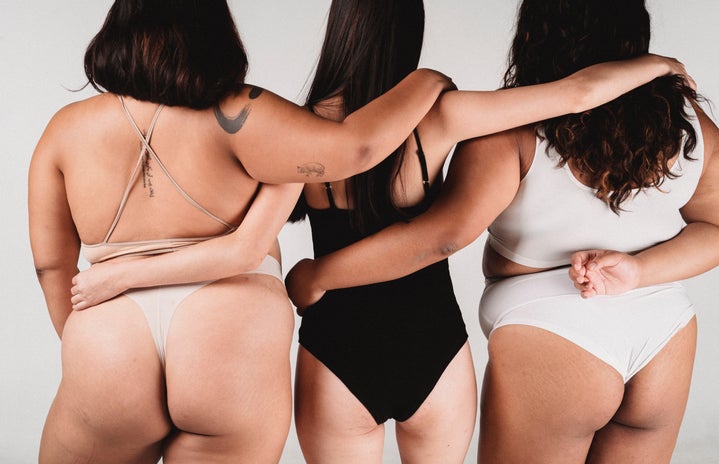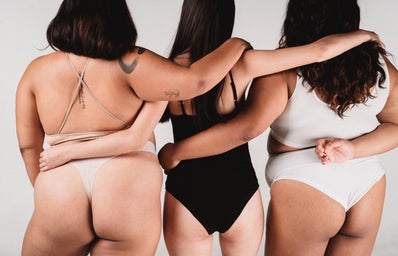I hate toxic body positivity for the same reason I hate toxic positivity in general, and both of these concepts are ones I find myself encountering far too frequently on social media platforms. Just as overwhelming unsolicited “encouragement” to “think happy thoughts” and avoid all negativity in our lives invalidates those who are dealing with difficult times and emotions, the constant influx of co-opted Instagram ad campaigns and halfhearted, trend-oriented posts about loving yourself do nothing more than diminish the body positivity movement to a series of affirmations about appearance.
Body image is a lot more complicated than just feeling 100% confident or 100% insecure about our bodies at any one given moment, and it should be treated as such. It’s influenced by several different factors, both social and biological, and it’s rooted in a whole lot more than just our individual perceptions of ourselves.
Erin Nolan, a doctoral student in social work at the University of Texas in Austin, explains, “body positivity can become toxic because it still emphasizes the physical appearance of bodies over the appreciation, functionality, and inherent dignity of the human body.” Body positivity is about more than just having the confidence to tell yourself you’re looking good when you see yourself in the mirror. It’s a radical journey of self-love and a social effort to create equal representation, appreciation and respect for all bodies.
However, body positivity in its current mainstream fashion is not an equal-opportunity endeavor, and we’ve still got a long way to go. Although the body positivity movement has had some significant successes — such as major clothing brands embracing more inclusive sizing and increased efforts from makeup companies to provide a wider range of skin tones — the sad reality is that the mainstream body positivity movement still predominately caters to thin, white and able-bodied straight women.
In a recent Tiktok, singer-songwriter Lizzo expressed concerns that the body positivity movement has lost sight of its roots, which started in the 1960s as the Fat Acceptance Movement aiming to remove the stigma and racial biases from fatness and to celebrate fat bodies. “The people who created this movement — big women, big Brown and Black women, queer women — are not benefiting from the mainstream success of it,” she shared. “We’re still getting s*** on. We’re still getting talked about, meme’d, shamed and no one cares anymore because it’s like, ‘Body positivity is for everybody!'”
Larger bodies tend to receive less adequate health care and are often misdiagnosed due to medical prejudices towards fatness. Accessing the wide variety of nutrients crucial to a healthy body is a challenge for low-income individuals, and bodily health depends on sleep, stress and other factors that are easily influenced by socio-economic status and environment.
Body positivity means fighting against the perpetuation of sexism and the objectification of women’s bodies in the media. It means advocating for social justice and taking steps to eliminate the fetishization of queer women and women of color, particularly Asian women. It means dismantling the effects of toxic masculinity on men’s fitness culture. It means pushing for accessibility for disabled persons and viewing accommodations as normality, not a burden.
If we’re going to be calling ourselves “body positive,” we need to do better than captioning our photos #LoveYourself on our Instagram posts.


